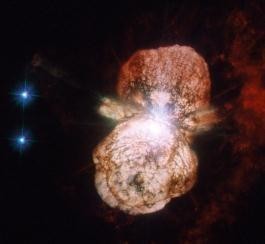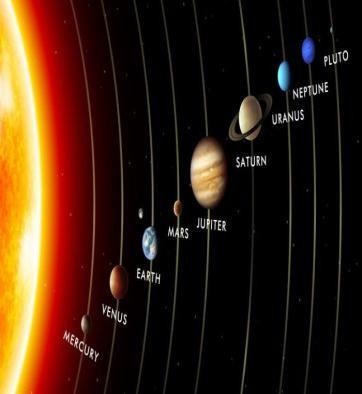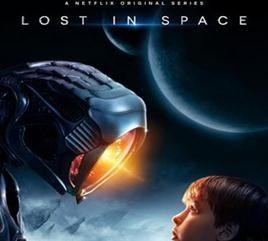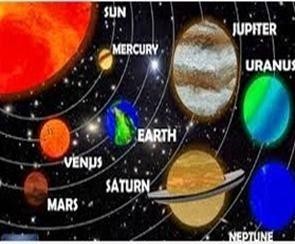
Sample questions and mark scheme Tasks for the Summative Assessment for term 4
Listening
Task 1. Listen to the recording and choose the best option A, B, C or D.
Use the link to listen: http://www.esl-lab.com/story1/storysc1.htm
-
What did the man report to the police officer? He reported about [1]
-
flying object.
-
unusual home.
-
pristine hill.
-
strange car.
-
-
What did the man see FIRST when he was returning home from the party? [1]
-
headlights of a driving car
-
low flying airplane
-
bright light of a sauce
-
nocturnal giant sea creature
-
-
Where was the man coming from when he first saw the Unidentified Flying Object (UFO)? [1]
-
He was returning home from a party.
-
He just got off work when he saw the UFO.
-
He was driving home from a restaurant.
-
He was returning home from the school.
-
Task 2. Complete the given sentences. Write no more than TWO words.
-
The car was attached by a huge, long-haired _______ _ [1]
-
Probably the beast took the man into a round _____ _ [1]
-
The Police Officer offered the man a help of a ______ __ [1]
Total [6]
Reading
Search for Supernova
 Sometimes a star explodes. The explosion is called a supernova.
Supernovas are the biggest explosions that happen in space. They
are one of the most powerful events in the universe. Usually,
changes to planets and stars happen very, very slowly. For example,
it took millions of years for our solar system to form. That is a
very long time. A supernova, however, happens very quickly. The
explosion lasts only about 15 seconds.
Sometimes a star explodes. The explosion is called a supernova.
Supernovas are the biggest explosions that happen in space. They
are one of the most powerful events in the universe. Usually,
changes to planets and stars happen very, very slowly. For example,
it took millions of years for our solar system to form. That is a
very long time. A supernova, however, happens very quickly. The
explosion lasts only about 15 seconds.
In Galaxies Far, Far Away
A galaxy is a system of millions of stars and the planets that circle them. Our solar system is in the Milky Way galaxy. In galaxies like ours, there are two or three supernovas every hundred years. There are many, many galaxies in the universe. Scientists can usually observe a few hundred supernovas every year.
Ingredients for Planets
Supernovas are important for shooting elements into the universe. Everything in the Universe is made of matter, and matter is made of elements. Huge stars are kind of like factories. The burning core of a star cooks up the elements needed to make everything else in the universe. When a star explodes, it shoots the elements into space. Eventually, the elements form new stars and new planets. These become solar systems, which make up galaxies. The elements are ingredients for making planets, moons, and even us!
Task 1. Read the questions and choose the best option A, B, C or D.
-
Which question is answered in the section "Search for Supernovas"? [1]
-
What causes supernovas?
-
Who can discover supernovas?
-
Where do supernovas happen?
-
Why do scientists study supernovas?
-
-
What information do you get from the section "Ingredients for Planets"? [1]
-
details about what kinds of stars can eventually become supernovas
-
facts about how long most supernovas last
-
details about what causes supernovas to happen
-
facts about how supernovas help make other things in the universe
-
-
Which detail from the article BEST states its MAIN idea? [1]
-
A galaxy is a system of millions of stars and the planets that circle them.
-
Everything in the Universe is made of matter, and matter is made of elements.
-
There are many, many galaxies in the universe.
-
Supernovas are one of the most powerful events in the universe.
-
Task 2. Answer the following questions using NO MORE THAN TWO WORDS or/and a NUMBER from the text.
-
What is the duration of a supernova?
___ _ _ _ _ _ _ _ _ _ _ _ _ _ _ _ _ _ _ _ __ _ _ _
-
What does star explosions necessary for?
___ _ _ _ _ _ _ _ _ _ _ _ _ _ _ _ _ _ _ _ __ _ _ _
-
Where are elements to create new planets evolved?
___ _ _ _ _ _ _ _ _ _ _ _ _ _ _ _ _ _ _ _ __ _ _ _
[1]
[1]
[1]
Total [6]
Writing
Task. Read the beginning of the story and continue it. Open the brackets in the final sentence correctly.
It is the year 3034. We are on our way to visit unknown planet Bibblebop in a faraway galaxy. Our huge spaceship flies for months past planets, stars and galaxies. At last, we have arrived. We open a door and look out – this planet is very green. There is an alien behind the tree. He is very scary… (why he feels some terror, what happened next)
(Express your feelings to this planet and people, write the end of your story)
If we (decide) to make a living at this planet some years ago, we (have) so many problems now.
Total [6]
SPEAKING
Students work in pairs. They are suggested two pictures (as the example below) to show own point of view on suggested ideas. They ask and answer to the questions of each other.
Card 1
You can see two pictures. Discuss with your friend the topic of the pictures. Ask questions, agree or disagree. You have 1 minute to prepare your speech and 2-3 minutes to speak. Questions can help you to organise your answer.


-
Would you like to travel into space? Why or why not?
-
What do you think about space tourism?
-
How important is learning about space?
-
Which planet in our solar system is the smallest?
-
Which planet in our solar system is closest to the sun?
-
Which planet in our solar system is farthest from the sun?
Card 2
You can see two pictures. Discuss with your friend the topic of the pictures. Ask questions, agree or disagree. You have 1 minute to prepare your speech and 2-3 minutes to speak. Questions can help you to organise your answer.


-
Will humans ever travel to different solar systems? Why or why not?
-
What is the most interesting thing you know about space?
-
Have you ever seen any of the following movies: ET, Alien, Star Wars? Which one is your favorite? Why?
-
Which planet in our solar system would you most want to visit?
-
How is the Earth unique in our solar system?
-
Do you think life exact on other solar systems?
Total [6] Total marks /24
Mark scheme Listening and Reading
|
Question № |
Answer |
Mark |
Additional information |
|
Listening |
|||
|
1 2 3 4 5 6 |
A |
1 |
|
|
C |
1 |
|
|
|
A |
1 |
|
|
|
creature |
1 |
|
|
|
flying saucer |
1 |
|
|
|
(great) therapist |
1 |
|
|
|
Reading |
|||
|
1 2 3 4 5 6 |
C |
1 |
|
|
D |
1 |
|
|
|
D |
1 |
|
|
|
15 seconds |
1 |
Full answers are not accepted. |
|
|
shooting elements |
1 |
||
|
(burning) core |
1 |
||
|
Total marks |
12 |
|
|
Give a mark out of 6 for each criterion (content, organisation, vocabulary, grammar and punctuation) and then calculate a mean to give an overall total out of 6. All fractional marks should be rounded up to the closest whole mark.
|
Mark / Criterion |
Content (relevance and development of ideas) |
Organisation (cohesion, paragraphing, and format) |
Vocabulary (style and accuracy) |
Grammar (style and accuracy) and Punctuation (accuracy) |
||||||||||||||||||||||||||||||||||||||||||||||||||||||||||
|
6 |
*Such misuse of register should not harm the format of writing. |
| ||||||||||||||||||||||||||||||||||||||||||||||||||||||||||||
















